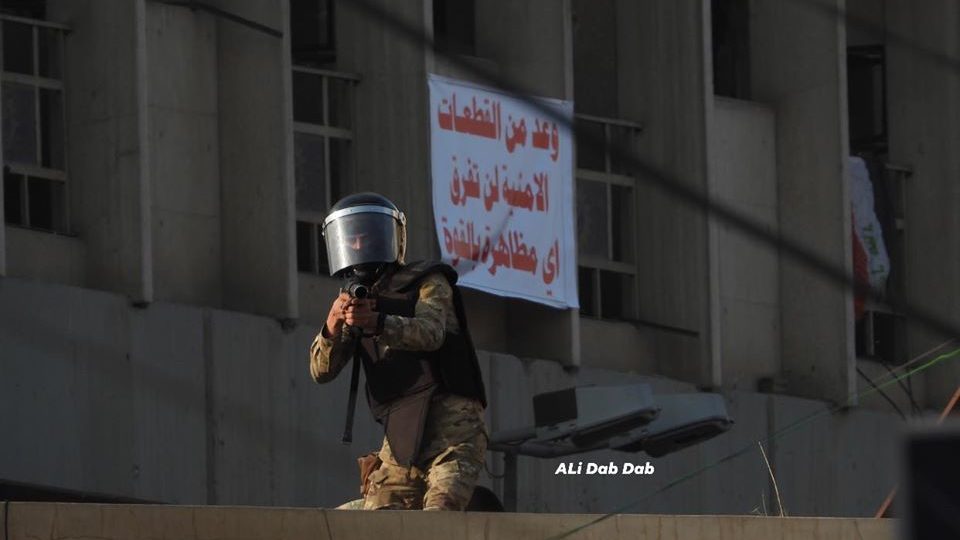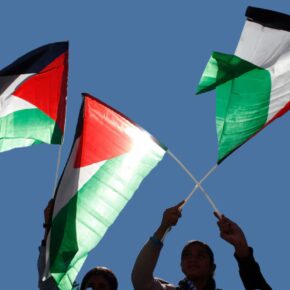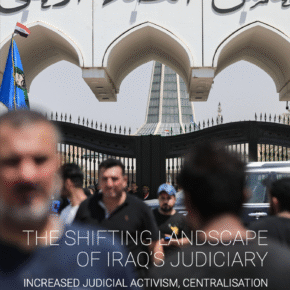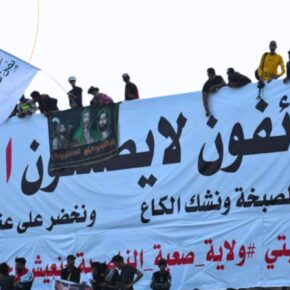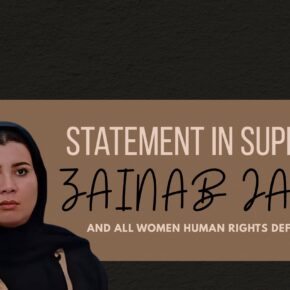Iraqi Human Rights Defenders: Challenges They Face and Support They Need
The Iraqi Civil Society Solidarity Initiative (ICSSI)
Overview
Since the beginning of October 2019, there have been widespread nonviolent protests against the authorities in cities across the nation. Many Iraqis have participated and authorities have responded with violence.
In this report we focus on the experiences of Human Rights Defenders (HRDs). By HRDs, we mean those individuals who are actively defending all forms of human rights, especially the freedom to demonstrate and freedom of expression. Why is it important to focus on HRDs? Because they are the primary stimulus behind the protests, and it is they who are working to keep the protests peaceful and nonviolent.
For example, one HRD has been educating protestors about nonviolent tactics and peaceful resistance as effective ways to confront the authorities, even in the face of their violent and repressive tactics. Despite, or perhaps because of their attempt to raise awareness about peaceful resistance and principles of nonviolence, these HRDs face challenges: they have been kidnapped by militias, subjected to unlawful detention, and increasingly, they have been assassinated. As a result, a large number of these HRDs have been forced to flee their towns and cities.
This report focuses on these challenges to HRDs in hopes of building solidarity and garnering support for them from concerned individuals throughout the world. This solidarity is crucial at this moment, but it is also forward looking, for it is imperative that Iraqi HRDs are protected and can continue to defend human rights both now and into Iraq’s future. This report cannot not tell all the stories of the many HRDs now active in Iraq; it does however highlight select cases in order to shed light on the larger situation now gripping the country.
Some Untold Stories
Threats and Terror: A.A. (21 years of age) has been actively participating in the protests since 2015. When the protests began again in October 2019, A.A. was among the first to join and to post news about them on social media. He was also invited as a long-term activist to discuss the protests by a number of media outlets. Then on the 13 October, he received overt threats via a cellphone from an unknown caller who ordered him not to criticize our religious leader, “Al-Sayid”, and insisted he “should distance himself from the protests for the sake of his personal safety and that of his family.” A few days later A.A.’s apartment was broken into and vandalised by unknown individuals, and his family received threats that their son should disassociate himself from the protests.
Forced to Seek Refuge: A.A.B. (28 years of age) is active in Iraq’s civil society and in its nonviolent movement. When A.A.B. was returning home at 23:00 on the evening of the 23 October, a car full of unknown individuals pulled up in front of him on a narrow side street, blocking his passage. Two of these individuals got out of the car and tried to kidnap him, but he held tightly to a street lamp nearby and called out loudly for help. Unable to force A.A.B. to let go of the pole, the kidnappers started to beat him with batons, but he continued to hold on tight. A few moments later, hearing his cries, people from nearby homes came out into the street to see what the commotion was about. The kidnappers fled as people came out, but not without threatening: “We will come for you again.” A.A.B and his wife F.B. (25 years of age) managed to run away that very same night and seek refuge in another part of Iraq. From there, A.A.B. continues his activism attempting remotely to influence the protests and ensure their continuity and peaceful nature. It is worth noting that in the area where he has sought refuge A.A.B. does not receive the same rights he enjoyed in his city, the most basic of which is his right to residency.
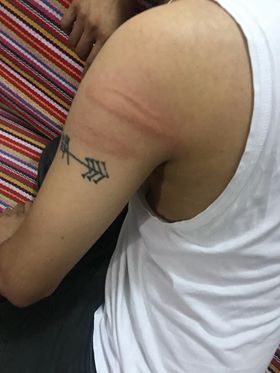
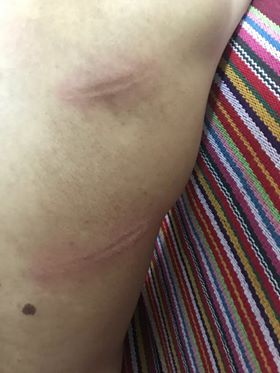
Unlawful Detention: S.F. (27 years of age) posted statements in solidarity with the protests in Baghdad and other cities on his personal social media account. In his posts, S.F. mentioned that protests should not take place in his city because it is one of the cities newly liberated from Daesh and still faces security challenges. In response, the security forces in his city, without any arrest warrant, apprehended and imprisoned him. The chief of police and the Qaymaqam of the city then ordered his family to abandon their home and leave the city within 24 hours. They refused and sought the mediation of a number of local tribes. At the time of the drafting of this report, S.F. remains in detention.
Abduction: On the evening of the 2 November, as S.M. (unknown age) was returning home from Baghdad’s Tahrir Square, where people were protesting en masse, she was abducted by an unknown group. S.M. had been providing first aid and medical assistance to the protesters who were injured by the authorities. Her mother and sister issued statements calling for S.M.’s immediate release, and thankfully, just as we were completing this report S.M. was returned to her family. But Human Rights Watch has reported that the strategy of targeting those providing medical aid is widespread and increasing. https://www.hrw.org/news/2019/11/14/iraq-security-forces-attack-medics-treating-protesters
Assassination: On the evening of the 7 November, at exactly 20:00, as protesters were returning from the protests, they were targeted with live bullets and A.D. (47 years of age) was shot and killed while his colleague B.M. (34 years of age) was critically injured. A.D. was a leading activist who spoke openly in support of the nonviolent uprising, of the paramount importance of growing the protests, and of keeping them peaceful and nonviolent. Prior to his assassination, A.D. gave frequent talks at protest centres which drew thousands of attendees.
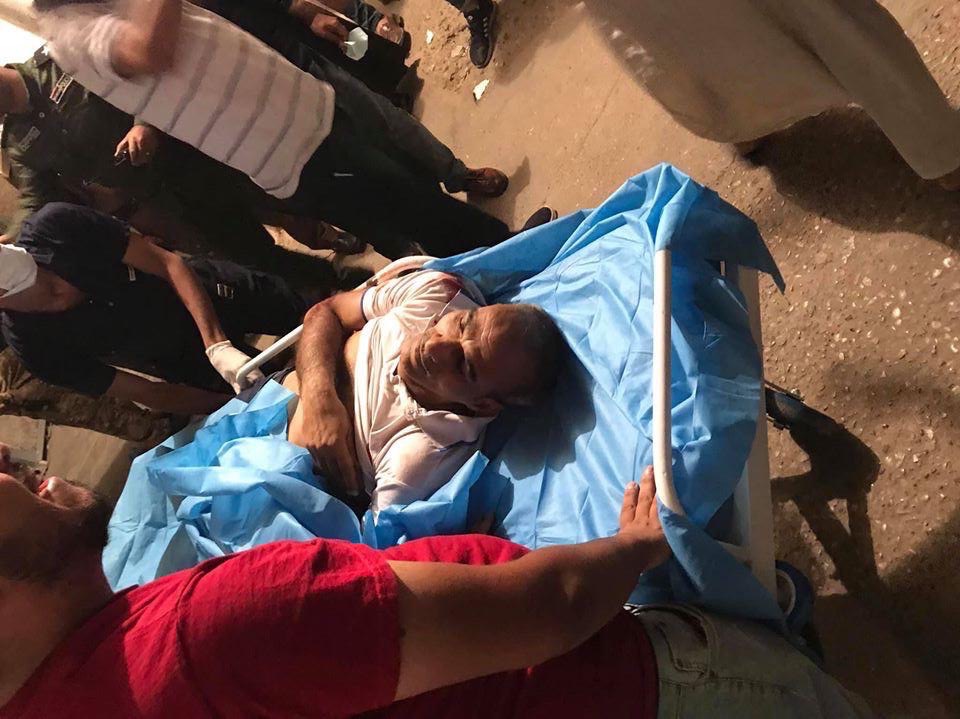
Stabbing: In Diwaniyya, protesters also face great risks. On the 6 November, two protesters were attacked in the middle of a square where demonstrations were taking place. An individual carrying a knife stabbed each of them multiple times and then fled. Police tracked the stabber down and arrested him. However, an unknown group of individuals began a heated argument with the police, who then released the assailant. The incident shows how the authorities lack either the interest or the ability to hold those who are attacking peaceful protesters accountable.
Note:
In order to help insure the safety of the HRDs referred to in this report, we have kept their identities anonymous lest we cause them further harm.
————
Call for Action:
The protection of HRDs in Iraq during these critical times requires immediate action. We all must recognize that Iraq’s democratic transition is threatened because democracy requires, above all else, that HRDs can operate within a secure environment in which their freedom of speech and freedom of assembly is guaranteed. Therefore, we call on the following from the Iraqi government, the United Nations, the European Union and its member states, and the larger international community:
1. The Iraqi government must bear full responsibility for investigating and holding accountable all those responsible (be they individuals, police, security forces, militias and/or other groups) for the killing, kidnapping and intimidation of HRDs who participated in or supported the protest movement. It is the government’s responsibility to provide protection for HRDs in all parts of Iraq.
2. In light of the widespread and acute violations that Iraqi HRDs are facing, we ask Mr. Michel Forst, the United Nations Special Rapporteur on the situation of human rights defenders, to take immediate action to protect Iraqi HRDs by paying a visit to Iraq in order to witness the situation personally.
3. We call on the European Union, its Iraq Mission, and its member states that have an official representative in Iraq to take immediate action to protect HRDs by establishing meaningful, open dialogue with the Iraqi government regarding the safety and wellbeing of Iraqi HRDs, and means for providing direct assistance to HRDs who find themselves threatened or in personal danger.
In addition to the aforementioned steps, it is imperative to undertake parallel action to establish mechanisms to prevent future threats to Iraqi HRDs and enhance and secure the environment in which they operate. In this regard, we call for the establishment of a mutually agreed mechanism between the Iraqi government and the United Nations focusing especially on protecting Iraqi HRDs and reducing the dangers they are exposed to. We propose the following steps, to be implemented on a long-term basis:
- Government authorities must immediately ensure that all police and security forces respect the human rights of all protesters and that the use of excessive force ceases. No militias, other forces, or individuals not under the direct control of government authorities should be involved in any security operations at the protests.
- Good channels of communication and coordination must be forged between the various security forces and civil society to reduce threats to HRDs and promote rule of law that protects all Iraqis’ human rights.
- An effective mechanism must be established which enables citizens to file complaints about repressive, unjust or illegal actions by the security forces and receive answers concerning how their complaints have been investigated and addressed.
- A curriculum should be developed to educate Iraqi students at all levels on the promotion and protection of human rights, in order to ensure that future generations believe in and will defend human rights and related principles.
- Shelters and safe spaces must be created where HRDs who are vulnerable or may be threatened are protected during times of emergency.

